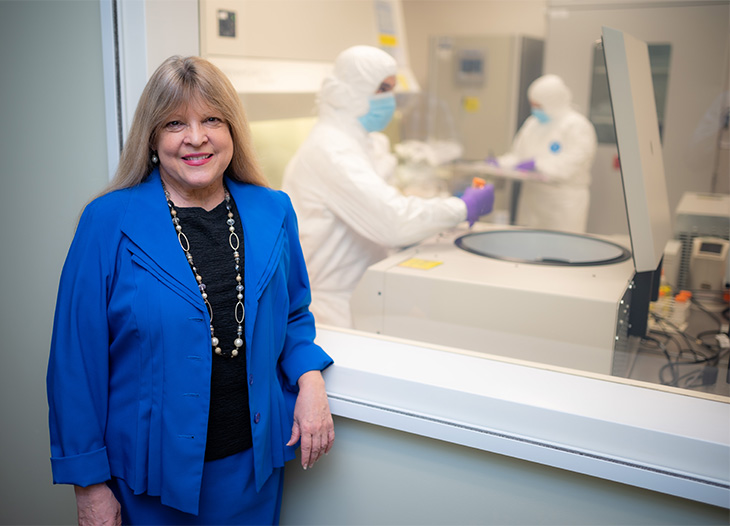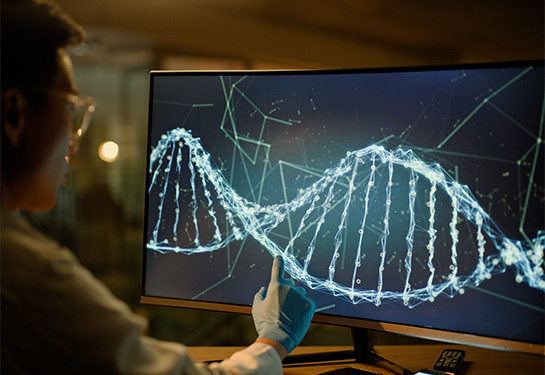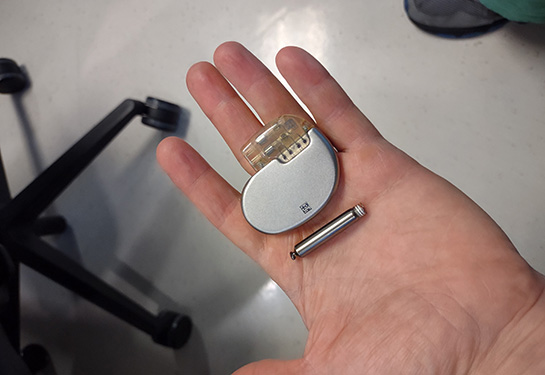UC Davis to lead MDA Kickstart project to develop gene therapy for rare neuromuscular disease
Muscular Dystrophy Association-funded research will focus on congenital myasthenic syndrome
The Muscular Dystrophy Association (MDA) announced today that UC Davis neurologist Ricardo Maselli will lead the first MDA Kickstart for Ultra-Rare Neuromuscular Disease project. The goal is to develop a gene therapy for a rare type of congenital myasthenic syndrome (CMS), an inherited disease that causes muscle weakness and fatigue.
Maselli’s project will focus on a form of CMS caused by mutations in the CHAT gene. This gene encodes an enzyme needed for the synthesis of the neurotransmitter acetylcholine. When this enzyme is defective, it disrupts the transmission of electrical signals from nerves to muscles. This disruption results in muscle weakness and potentially fatal apnea (when breathing stops).
“CMS due to CHAT mutations is a serious disease because of the risk of sudden, potentially fatal, episodes of respiratory arrest. When suspected, this disease can be easily diagnosed with blood genetic testing in newborns and infants. Unfortunately, in many cases, the disease remains undiagnosed until adulthood,” Maselli said. Maselli is a professor of neurology and clinical neuroscience and a world-recognized expert in the field of CMS.
Gene therapy development for rare diseases
According to the MDA, gene replacement therapy delivered via adeno-associated viruses is a feasible strategy to treat the genetic cause of many neuromuscular disorders.
But there is limited commercial interest in developing these types of therapies for conditions that affect less than 1,000 people in the U.S., like CMS. The MDA Kickstart program aims to address that gap by supporting drug development for ultra-rare neuromuscular diseases.
“The Muscular Dystrophy Association recognizes that many neuromuscular diseases may be too rare to be commercially attractive for therapy development by drug companies,” said Sharon Hesterlee, chief research officer of MDA. “The MDA Kickstart program will help ensure that patients with ultra-rare forms of neuromuscular disease are not left behind in the era of genetic medicines and can also experience the potential benefits of gene therapies.”

Leveraging UC Davis Health expertise in stem cell and gene therapy
Maselli will work with researchers at the Stem Cell Program and the UC Davis Gene Therapy Center in the Institute for Regenerative Cures at UC Davis Health. The institute includes Northern California's largest academic Good Manufacturing Practice laboratory, with state-of-the-art equipment and manufacturing rooms for cellular and gene therapies.
“Our team has worked closely with Dr. Maselli for the past decade. We have been continually impressed with his immense dedication to patients with rare neuromuscular disorders,” said Jan Nolta, director of the Stem Cell Program and the UC Davis Gene Therapy Center. “It is wonderful to now work with the great team at MDA to accelerate development of therapies into the clinic for these patients who have few other options.”
Ahmad Hakim-Elahi, previous executive director of UC Davis Sponsored Programs Office, and Raj Gururajan, senior licensing officer at the Technology Transfer Office, facilitated this research agreement with MDA.
About Muscular Dystrophy Association
Muscular Dystrophy Association (MDA) is the #1 voluntary health organization in the United States for people living with muscular dystrophy, ALS and over 300 related neuromuscular conditions. To learn more visit mda.org





